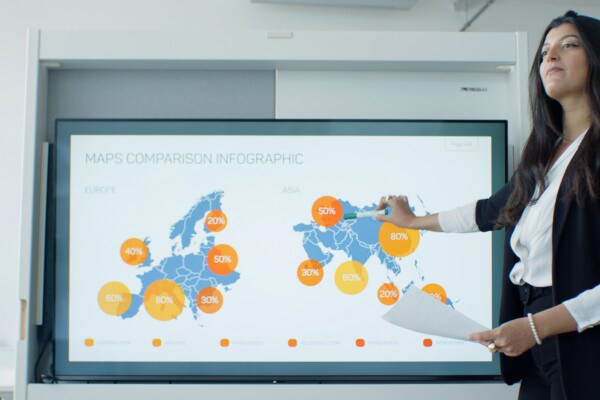Carbon footprint reduction – Hype or reality?
When it comes to Climate Change and Carbon Reduction, despite the urgent messaging coming out of COP26 and the “Code Red” warning from the IPCC’s Report earlier this year, some people may still be prone to cynicism. There are some who may still believe that all the ‘hype’ regarding carbon reduction and ‘saving our planet,’ is in fact just that – hype. Yes, there are important factors at stake, and we all, (well hopefully the vast majority of us), want to ‘protect the planet’; we want to protect our biodiversity, and we want to make our earth a better place to be. Nowadays it’s easy for the majority of us to recycle at home, and we have the ability to choose our household products based on their ethics and sustainability of supply chain. However, it is still tricky to ensure our products are cruelty free, and even more tricky to remove palm oil from our choice of products.
In the workplace, not my responsibility; Is it?
But, these are all individual choices that we make for our own personal lives, and our homes, often choices we make with our family and friends. What about our carbon and environmental impact in the workplace? This can often be overlooked. And anyway, we can leave that to the Board to look after, that’s their problem, right?
Well yes, and no. It is now a compliance requirement for public sector organisations and services to set NetZero targets and then to measure, report on and provide evidence of their efforts to reach these targets. Following COP26, there can be little doubt that these compliance standards will soon be hitting the private sector too. As we know, there are already industries with their own specific targets, such as car manufacturing. There are also new and emerging technologies such as within the digital asset space, some of which, although they currently have no formal targets, are already aiming to reach net zero by 2030. Interestingly, there are proof of concepts within this space that are proving to be more energy efficient in the transaction of payments than some of the traditional sectors. However, this is where we as individuals step back in… The truth is, that without the participation and co-operation of individual employees and wider stakeholders, it can make optimisation of a company’s NetZero Plan at best, more troublesome than it should be. At worst, an organisation’s Carbon Reduction Plan targets could be adversely affected, missed or scuppered completely!
It’s easier than you think and it involves everyone
Working on carbon reporting and NetZero objectives with many companies over the last few months has certainly opened my eyes. I’ve become more appreciative of how easy it can be for a company to just do the right thing. Initial carbon reduction strategies can be both easy and relatively low cost to implement; from increasing recycling, choosing an appropriate waste company, reducing travel, and hybrid working, to internal policies and training, etc. I have come to strongly believe employees now need to adopt the mindset that it’s all our individual duties to ensure that we’re aligned to our organisation’s efforts in this regard. Not just to ensure success in reaching these critical corporate goals, but because ultimately it helps the environment – OUR environment, Our planet!
What could you do as an individual? Maybe, your organisation doesn’t have a waste policy, an environmental policy, a print policy, or are there incentives to reduce travel? Should they? Would it work or help in meeting carbon reduction goals? What about your organisation’s partners and suppliers – what is their carbon footprint?
The initial corporate journey to carbon reduction can be relatively straight forward. The intricacies come when both upstream and downstream supply chains are considered, (Scope 3 carbon emissions). Or in weighing up the carbon footprint of remote or homeworking versus being office based is considered. And what about the fine balance of assessing the benefits and cons to meeting face-to-face compared to digitally. This is the depth of detail at which true carbon reduction has to be considered, yet these aspects can also have the biggest pay-off in terms of reaching that all important NetZero goal.
Moreover, it feels good
Personally, I am proud to say that we have worked with a number of organisations within the last month to help them reduce their carbon impact, with circa 550 tonnes of CO2 removed from circulation. That’s also not even counting all the additional off-setting initiatives to protect our peatlands, increase our woodland and invest in local communities. Not only am I bearing witness to these new carbon reduction strategies being implemented, but I can also see the amazing off-setting benefits being realised, both for environmental and social value gain within our communities.
I wonder whether at some point individuals may also be required to calculate and manage their own NetZero impact, perhaps aligning this to tax initiatives. But perhaps that’s one for the future…




